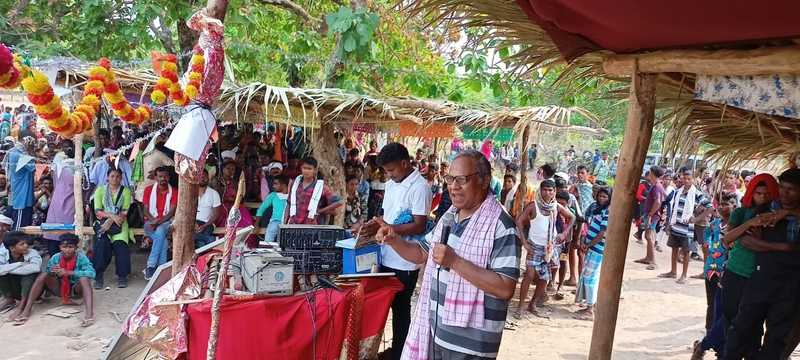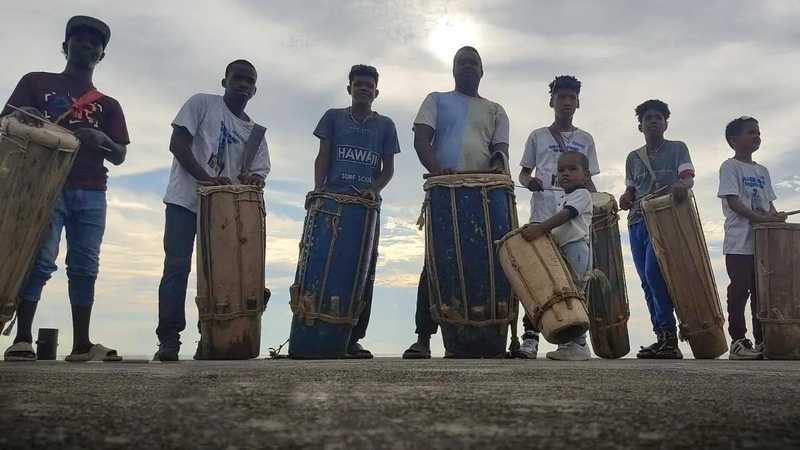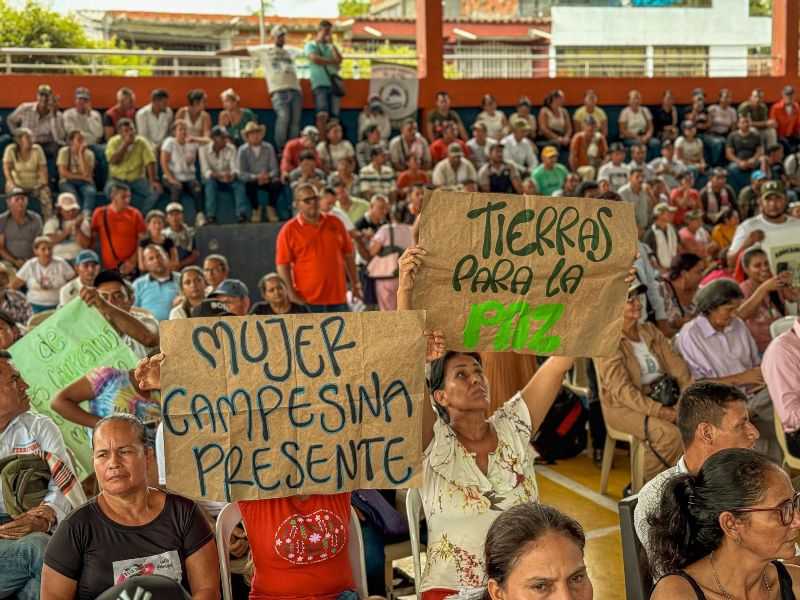
Since then, the whole of South Bastar has mobilized to demand the removal of the military base, an end to the construction of the road being built for mineral exploitation in the area, punishment for those responsible for the killings, and compensation for the casualties. This was a state sponsored massacre designed to ensure corporate looting of natural resources, and the Congress government cannot escape its responsibility. After an entire year, the police have yet to register a First Information Report about the killings, much less provide compensation to the families of those affected. In short, the tribal communities are waiting for an “endless justice”. This military base has raised sharp questions about state suppression of human rights and violations of PESA [the Panchayat Extension of the Scheduled Areas] and Forest Rights Acts.
Though the government tried to suppress news of this killing, and tribal resistance, the movement is accelerating, and the mobilization of tribal communities in this rugged region is growing. The Silger movement is developing as a representative face of resistance against the plundering of natural resources in the whole of Bastar and the tribal areas of Chhattisgarh. When this movement, run by the Moolwasi Bachao Manch, organized its meeting expressing solidarity with the nationwide farmer movement, on 26 November, more than ten thousand tribal men, women and youth were involved, whose numbers were increased on the anniversary of martyrs. Ultimately, the meeting reached an attendance of twenty thousand. As representatives of the Kisan Sabha, we are the witnesses of both these meetings.
After the massacre, the Congress party sent a delegation to Silger, but its report has, to date, not yet been released. The public representatives of BJP also visited the site, but remained silent. Under the pressure of public outrage, the government had to announce a magisterial inquiry as well — but even after a year, there is no trace of its investigation. The young tribal leaders who are running the Silger movement have spoken to Chief Minister Bhupesh Baghel twice, but received little assurance, and nothing concrete has been done.
Journalist Purnachandra Rath, reporting directly from this movement site, wrote in his dispatch:
There is no visible attempt by the government to remove the camp, but all efforts were made to weaken the movement. All mobile networks cease to exist as soon as we cross the nearby Tarrem police station and only the police wireless set works for communication. In this year-long demonstration, the agitation continued amidst all the natural calamities like winter, heat, rain. However, during the Coron period, by imposing Section 144, the gathering was declared a crime, since last year till now. Those coming from the city were repeatedly stopped, stories of the end of the movement were spread even if there was no solution in the talks, but the movement continued with the same vigor.
The number of villagers participating in this was seen to be more than 20 thousand on 17 May 2022 and 90% of them were youths of 12 to 35 years, in which the number of girls was the highest. Only a few people could communicate in Hindi. According to them, they came from distant villages by travelling 50 to 100 kms. and in turn contribute time and money to the movement as per their capacity. When Sunita was talked to among the youth arranging food and tea, she said that they arrange rice and money by roaming around at the panchayat level. Even medicines for minor ailments, injuries, diarrhea are available free of cost to the visitors. Every effort was made to make all the necessary arrangements for any long lasting movement from our own local resources.
A pavilion of about 80,000 square feet was built only 6 feet high, covered with palm leaves, for people to sit in the hot summer. The stage made of clay, about 40 feet in length and about 20 feet in width, was decorated with colorful paper flowers. On the platform, there was a system of mic system and laptop, printer, powered by solar photovoltaic sheets, through which the announcements and information of the native platform were being printed and distributed. Written “thank you” letters were also distributed to the journalists who came for coverage at this remote site.
In the pamphlet of Moolwasi Bachao Manch, an attempt has been made to keep the incidents of the movement in a sequential manner. At least 5 mobile cameras are continuously recording video throughout the event, whenever any worker makes a statement or talks, he tells each and every issue very seriously, which his partner is also present to record.
In any movement, the presence of the public and enthusiastic slogans play an important role. But in such long-running movements, with no visible ends and no conclusive predictions of success or failure, behind the scenes cultural intervention is more important. We saw this in the countrywide peasant movement also. Behind the strength of the Silger movement, this cultural intervention is also playing an important role in organizing mass mobilization and enthusiasm and in giving spiritual strength to this entire movement.
One activist, Azad, told us that on some days, attendance at the protest reaches up to 200-500. Raghu is the real face of this movement. We saw that even in the midst of the heavy presence of the armed forces, he was boldly speaking to the journalists. During this period, the brilliance of the struggle against the exploitation and plunder of the Adivasi, and the confidence of victory, could be clearly seen on their faces.
Kala Sanskriti Manch is continuously active in this movement. Those associated with this write songs together with the agitators here. Azad says that Hindi songs have helped him a lot in this process of writing. Together, they compose the tunes of these songs and rehearse dances together before any big event. We have seen that their cultural performances are mesmerizing and have political content. In these songs they are identifying their enemies. For them Narendra Modi, Amit Shah, and Bhupesh Baghel-Kawasi Lakhma are traitors. For the past year, their cultural practice has gone on every night.
When we reached Silger on the morning of May 17th, thousands of Adivasi were demonstrating with their slogans and songs in front of the military base. There, they have built a memorial (Smarak stambh) in the memory of their martyrs. Painted with green, the “Green Jhanda” inscribed with a hammer-and-sickle waves proudly. During the performance, activists sang and danced to their resistance songs. A tribal worker declares that if the state wants to steal their water, forest and land, it will have to make kill them first. The soldiers’ gun-points are bowed in front of this courageous demonstration of the tribals.
For the last year, the road construction connecting Bijapur to Jagargunda has been stopped. Work has not progressed beyond the base in Silger. It is clear that as long as the movement is alive, the path of corporate loot will not be easy.
Meanwhile, despite government propaganda that this movement is ‘Naxal sponsored’ [the Naxalite are a Maoist insurgent group active in parts of East and Central India], the movement has only intensified. This movement has exposed the real face of the Congress-BJP governments of not treating tribals as citizens of this country, crushing Adivasi civil rights when it suits their agenda of corporate looting.
Audio message of Badal Saroj in Silger’s meeting:
“Hitler, Tojo, Mussolini are defeated, Baghel will also retreat*
“The central and state governments of this country are waging war against Dalits, Adivasis and the poor to make way for corporate looting. But the struggle against their oppression continues. If you will persevere like this and the strength of the country’s farmers will join you, then like Hitler, Tojo, Mussolini, Narendra Modi’s government will have to bow down and Bhupesh Baghel’s government will be forced to accept its mistakes.”
This was the message Badal Saroj, Joint Secretary of All India Kisan Sabha shared with the agitators of Silger. He was invited by the Moolwasi Bachao Manch in the program organized on the anniversary of the martyrs of Silger. In his message, Saroj said that the memorial of the martyrs built by the agitators is not just a structure of brick, cement and concrete, but a living document of history, which will tell our future generations of the sacrifices made to save the forest, life, and democracy.
The Kisan Sabha leader said that when he came here in November last year, he saw with his own eyes that the government and the wealthy capitalists sitting in power had opened army bases here instead of building schools and hospitals. “You are continuously fighting in a peaceful manner against the undemocratic treatment of these bases and their abhorrent treatment and oppression of the tribal youth. Kisan Sabha supports this fight.”
He said that the All India Kisan Sabha, the largest farmer organization of this country and the Sanyukt Kisan Morcha, made up of 550 organizations, considers this fight as its fight. On the strength of the unity of the farmers and the Silger movement across the country, the Modi government was forced to withdraw the three anti-farmer laws, which were going to destroy the agriculture and common people of this country. Similarly, the Silger movement will also win.
In his message, he explained in detail how two tribals in Seoni were brutally murdered by goons of Bajrang Dal and Shri Ram Sena. These goons have the protection of the Shivraj government of BJP of Madhya Pradesh. Protest actions were taken against it on 9 May. He said that he is busy working to unite the farmers’ organizations of the country and the state, so it was not possible for him to come to Silger at that time.
Badal Saroj also said that no matter how far you are from the capital of the country, battles such as these have the power to take your voice to the capital. If you will stick firmly in this way and the strength of the country’s farmers will join you, then. like Hitler, Tojo, and Mussolini, Narendra Modi’s government will have to bow down and Bhupesh Baghel’s government will be forced to accept its mistake.
"If the elder Modi has bowed down, then the younger Modi will also bow down" Badal Saroj
“The policies of both the Modi government of the BJP and the Baghel government of the Congress are pro-corporate policies, the main objective of which is to fill the coffers of the wealthy by depriving the tribals, dalits and the poor from natural resources. But the struggle against this looting continues in the whole country. As the elder Modi has kneeled, and was forced to withdraw the anti-farmer laws, in the same way, the younger Modi will also have to bow down — and he too will have to declare justice for the tribals of Bastar.”
Sanjay Parate, President of Chhattisgarh Kisan Sabha said this, while addressing a huge public meeting organized on the first anniversary of those martyred by the bullets of military forces in Silger. His reference to ‘Young Modi’ was towards Bhupesh Baghel. He was accompanied by Rishi Gupta, general secretary of CG Kisan Sabha.
In his address, the Kisan Sabha leader said that he had come with Badal Saroj in November. On behalf of the Sanyukt Kisan Morcha, he described the Silger movement as the 7th outpost of the nationwide peasant movement. He said that thousands of tribals are peacefully staging a sit-in at this post for the last 370 days and demanding implementation of the constitution and laws of this country, but those in power have been firing bullets at them to fulfill their lust for profit, registering false cases, and putting them in jails. He said that the struggle of Silger is a struggle to protect the future of our children and the existence of Chhattisgarh and our generations will proudly remember how their mothers and fathers sacrificed their lives to protect the water, forest and land, and their lives and Democracy had been saved.
Kisan Sabha leader Rishi Gupta said that the governments which are not ready to follow the constitution and laws of their own country do not have the right to remain in power even for a minute, and the citizens of this country have the right to reject such governments. In reality these governments are anti-citizen, anti-national governments. He said that due to this corporatism, the tribals of Hasdeo, Korba and Bastar are being displaced from their land. This is a process of massacre of the entire tribal population, which will be strongly opposed and all sections of humanity loving people will be mobilized. The Kisan Sabha leader demanded the implementation of the PESA law in the state, so that the concept of tribal self-government would be implemented. He also demanded that the officials responsible for all incidents of tribal genocide be punished and compensation of Rs 50 lakh each to the victims’ families
The Kisan Sabha leaders also announced the launch of a campaign in support of the movement of Silger and Hasdeo in the state.
Sanjay Parate is the President of Chhattisgarh Kisan Sabha.







